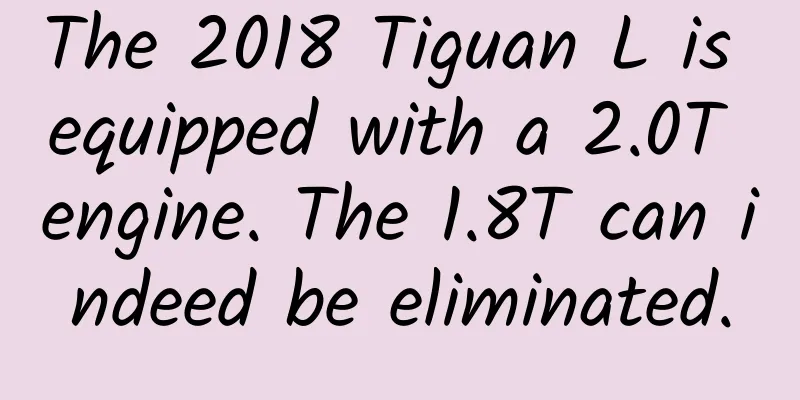Operators shut down 2G/3G: Who will pay for everyone to replace their phones?

|
As early as two years ago, operators led by China Unicom and China Mobile had already begun planning to shut down 2G networks. At present, China Unicom has issued a notice to shut down 2G networks in some areas, while China Mobile has shut down 3G networks in some areas. So far, the shutdown of domestic 2G or 3G networks has entered the stage of orderly promotion from pilot projects. For operators, shutting down 2G networks has thrown off a heavy economic burden. But after the 2G or 3G network is shut down, users will face a series of problems such as increased rates and poor signal coverage. Who will pay for the user's losses? Shutting down the 2G network is essentially to reduce the burden. After experiencing the technological changes of 3G and 4G generations, the 2G network that has been in operation for more than ten years has become a heavy economic burden for the three major operators. As we all know, compared with 3G and 4G networks, the rates of 2G networks are very low, and some packages are even as low as 3 yuan. For China Mobile and China Unicom, 3 yuan cards can be seen everywhere in every region of the country. Although the three major operators have been guiding users to migrate to 4G networks, according to data, the number of people on the 2G network of the three major operators is the largest, but it was the least in the past. For China Mobile, the 4G network penetration rate is the highest among the three major operators, about 60%. In terms of operating costs, the costs of 2G networks and 4G networks are almost the same. In addition, the 2G network base station technology is relatively old and the energy consumption is high. The three major operators have the most 2G users but make the least money. The 2G network in some areas is even operating at a loss. More importantly, the continued use of the high-quality frequencies used by 2G has led to a sharp increase in the construction costs of the 4G networks of the three major operators. This is the real reason for shutting down the 2G network. China Unicom and China Telecom's 2G networks have always been running on the 900Mhz frequency band, and the technical advantages of this frequency band are obvious to all. In terms of coverage area, 900MHz is 2.5 to 3 times that of 2.1GHz; the number of sites built based on 900MHz is 65% less than that of 2.1GHz. In terms of indoor coverage, the UMTS 900MHz index is also more than 20% better than UMTS 2.1GHz. Based on these technical characteristics, 900MHz has shown new potential in two aspects. If the 900Mhz frequency band can be applied to 3G or 4G networks, the network construction costs of China Unicom and China Telecom will be reduced, and the network quality will also have a qualitative leap. The latest news shows that the Ministry of Industry and Information Technology has approved China Unicom and China Telecom to apply the 900Mhz frequency band retired from the 2G network to the 4G network, and has launched trials in some areas. At the same time, China Telecom has also applied the 800Mhz frequency band retired from the 2G network to the 4G network. In contrast, China Mobile's situation is more embarrassing. Since China Mobile's 4G network has not yet fully realized voice bearing, shutting down the 2G network will affect users' normal calls. However, judging from the feedback from users in various places, China Mobile is shutting down the 3G network in an orderly manner, clearing 3G base stations and frequencies, and reducing operating costs. It is not difficult to see that after shutting down the 2G or 3G network, the number of 4G network base stations can be reduced while ensuring network coverage. In addition, most users of the 2G network have low consumption, and shutting down the 2G network can greatly reduce operating costs. However, how to properly transfer 2G users to other networks is still a difficult problem faced by operators. Users are most hurt by the closure of 2G network Although the three major operators are shutting down 2G or 3G networks in an orderly manner and have not yet been implemented on a large scale, it is an indisputable fact that users will become victims of the closure of 2G networks. After shutting down the 2G network, the three major operators have thrown off the heavy economic burden and the interests of users have been ignored. 1. Substantial increase in tariffs: Since the three major operators have different tariff systems for 2G, 3G and 4G networks, once the 2G network is shut down, the user's number will not change, but the original 2G tariff will be invalidated. To give a simple example, Shandong Unicom 2G has a minimum consumption of 3 yuan package. After transferring to the 4G network, the minimum consumption is about 20 yuan, and the tariff has increased by more than 6 times. Although the operator promised to continue to use the original package when Xiaolingtong was withdrawn, this is not realistic for users. The same 2G package of Shandong Unicom with a consumption of 3 yuan, there is no traffic package. If you accidentally turn on the data switch, the traffic fee of more than ten yuan will appear. More importantly, the three major operators have been trying to increase user consumption value, and using 2G packages to switch networks is probably just wishful thinking of users. 2. Poor network coverage quality: As the earliest mobile communication network, the 2G network of the three major operators has been continuously optimized and upgraded for more than ten years, and the network coverage is already quite complete. When users are in areas where 4G networks cannot cover, the well-covered 2G network can provide users with two basic communication guarantees: voice calls and text messages. After all, if there is no 4G network and 3G network, the user's normal communication service will be interrupted. Compared with 3G and 4G networks, 2G has an absolute advantage in network coverage. Although the three major operators have been working hard to improve the coverage quality of the 4G network in recent years, there are still many network blind spots. After all, the 2G network has a history of more than ten years. It is not difficult to imagine that once the 2G network is fully shut down, the network coverage quality will be greatly reduced. The 4G network has higher tariffs, but the network coverage is not as good as the 2G network, which is undoubtedly a big loss for consumers. 3. Terminal replacement cost: After the 2G network is shut down, consumers must replace the terminal if they want to use the 4G network. At present, many 2G network users are not smartphone users, but feature phones. After shutting down the 2G network, users must purchase corresponding mobile terminals to use 4G services. Who will pay for the terminal replacement cost? At present, the cheapest 4G terminal on the market is about 600 yuan. For 2G users who only spend a few yuan a month, a 600 yuan 4G terminal is already a luxury. In the past two years, the three major operators have been cutting 4G terminal subsidies, and it is obviously unrealistic for operators to bear the terminal replacement cost. Obviously, while shutting down the 2G network reduces the economic burden of operators, consumers bear a series of additional costs such as tariffs and replacement of mobile terminals. As of now, the three major operators have not issued corresponding policies for clearing out the 2G network, and consumers may become victims of the closure of the 2G network. In the end: After the three major operators clear out the 2G network, the frequency of clearing out can greatly improve the quality of 4G network coverage, and consumers will also benefit from it. Compared with the heavy economic burden that operators get rid of by clearing out the 2G network, the benefits consumers get are negligible. It is undeniable that technological updates can bring about social progress, but such progress cannot be built on the basis of trampling on consumer interests. As a winner of Toutiao's Qingyun Plan and Baijiahao's Bai+ Plan, the 2019 Baidu Digital Author of the Year, the Baijiahao's Most Popular Author in the Technology Field, the 2019 Sogou Technology and Culture Author, and the 2021 Baijiahao Quarterly Influential Creator, he has won many awards, including the 2013 Sohu Best Industry Media Person, the 2015 China New Media Entrepreneurship Competition Beijing Third Place, the 2015 Guangmang Experience Award, the 2015 China New Media Entrepreneurship Competition Finals Third Place, and the 2018 Baidu Dynamic Annual Powerful Celebrity. |
Recommend
Substitutable and non-disruptive innovation: Apple doesn’t need to acquire GoPro and Tesla
Recently, some foreign analysts suggested that Ap...
How to operate a Douyin corporate account without experience and manpower?
With the rise of short video platforms, more and ...
Xi'an half-service massage release
Xi'an Tea Tasting has its own studio: Senior ...
I think a 79 yuan eyebrow pencil is expensive. Is it because I am not working hard enough?
Recently, a top anchor who sells products on the ...
The bookmark of the stratum - the "golden nail"
The bookmark of the stratum - the "golden na...
Samsung recalls and stops production, who will take the opportunity to take over?
After a month of struggle, Samsung finally announ...
The ill-fated fate of the movie "Steve Jobs" is enough to make another movie
[[124666]] Apple soared to the sky, and the young...
How to play CPA advertising project? Use ad networks to earn revenue!
CPA is a common advertising promotion method at p...
How long will Apple's decline continue? Can iPhone 7 turn the tide?
How long will Apple's decline continue? Can i...
Baidu World Conference releases new products and AI technology ranks among the world's top
The 2017 Baidu World Conference was held in Beiji...
These 10 cognitions may be the gap between you and the UI designers of big companies
As UI design continues to gain popularity, althou...
It's the end of the dog days, but you still don't know how to use your air conditioner? How to save more electricity? The key is to look at...
Although the dog days of summer have come to an e...
The latest news on oil price cuts in 2022: When will they fall? Attached with the latest market information!
In recent years, due to the impact of the new crow...
5 ideas for online marketing promotion!
After years of development, online marketing has ...
Video UGC breakthrough: Video-based self-media
The domestic video UGC model looks more and more ...









